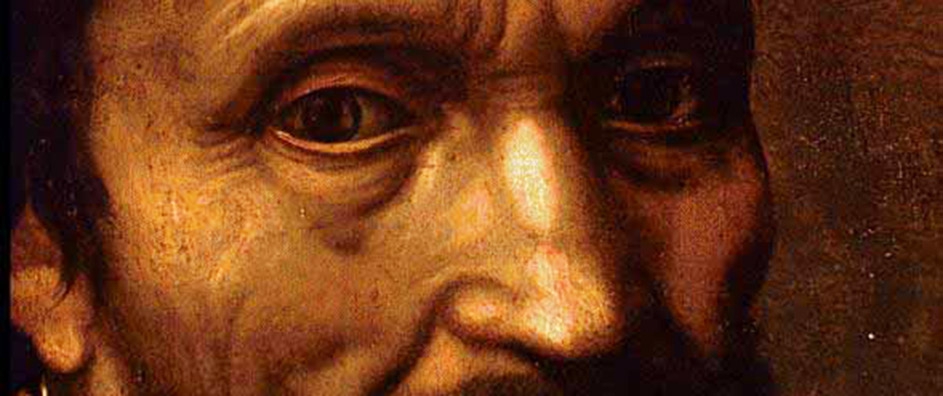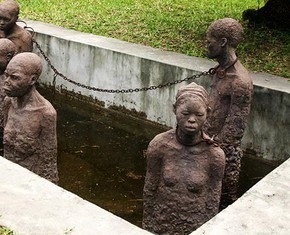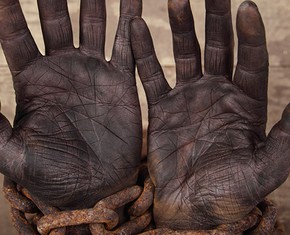The views expressed in our content reflect individual perspectives and do not represent the authoritative views of the Baha'i Faith.
Let’s say (perish the thought) that you were condemned to death, and decided to write a book about God and justice. What would you write?
About a thousand years after the composition of the Book of Job, Anicius Boethius (480–524) wrote The Consolation of Philosophy, a work that takes an approach wholly different from Plato’s and Job’s treatments of justice in the physical world. Affirming the providential hand of God at work in human history, Boethius advocates abandoning our concern about the apparent lack of justice in physical reality, so we might focus our attention on the more enduring effects of our spiritual development.

Anicius Boethius
He composed his examination of justice under the most dire and pragmatic circumstances. A fifth-century Italian scholar and consul to Theodoric the Ostrogoth, Boethius was a victim of political machinations for which he was imprisoned and condemned to death. While awaiting execution, he composed The Consolation of Philosophy as a dialogue between a fictional persona, Boethius himself, and the allegorical figure Dame Philosophy. In the course of this dialogue, Dame Philosophy attempts to teach the distraught Boethius about God’s justice, primarily in relation to individual life.
At the beginning of the work Boethius asks Dame Philosophy the obvious question: If God is, whence cometh evil?
Like Job, Boethius is beset with unjust tribulation, but beyond his own unjust circumstances, he is equally concerned with the way in which the world itself seems to fall prey to the iniquity of unjust men. Therefore, after explaining his own unjust imprisonment as one example of evil, he catalogs an array of injustices he has observed in the phenomenal world:
I see honest men lying crushed with the fear which smites them after the result of my perilous case: wicked men one and all encouraged to dare every crime without fear of punishment, nay, with hope of rewards for the accomplishment thereof: the innocent I see robbed not merely of their peace and safety, but even of all chance of defending themselves.
Dame Philosophy tells Boethius that his consternation about what he perceives results from his having “forgotten what you are”:
Now therefore I have found out to the full the manner of your sickness, and how to attempt the restoring of your health. You are overwhelmed by this forgetfulness of yourself: hence you have been thus sorrowing that you are exiled and robbed of all your possessions. You do not know the aim and end of all things; hence you think that if men are worthless and wicked, they are powerful and fortunate. You have forgotten by what methods the universe is guided ….
She then proceeds to prove to Boethius that his grief is unwarranted. First she shows Boethius that he has had good fortune as well as bad. Next she reminds him of the vanity of worldly desires. She tells him the very treasures that are universally prized—riches, positions, kingdoms, earthly glory, fame, nobility of birth, lusts of the flesh—are all actually harmful and not to be desired. She then discusses the source of true happiness: a belief in and understanding of God Himself.
She quickly proves to Boethius that, inasmuch as God is absolutely good, He can do no evil. What Boethius perceives as evil is either not of God, or else not completely or properly understood. In the course of further discussion Dame Philosophy distinguishes between Fate and Providence. Fate, she notes, is seemingly fickle; none of us can foresee what will occur in the future. But Fate, she asserts, is ultimately subject to Providence, and Providence functions at the behest of God’s eternal plan:
Thus is the world governed for the best if a directness, which rests in the intelligence of God, puts forth an order of causes which may not swerve. This order restrains by its own unchangeableness changeable things, which might otherwise run hither and thither at random. Wherefore in disposing the universe this limitation directs all for good, though to you who are not strong enough to comprehend the whole order, all seems confusion and disorder.
Dame Philosophy’s concept of divine order lies at the heart of The Consolation of Philosophy. It implies an acceptance, both in regard to historical events whose final implications we cannot fathom, and in regard to our own individual lives, which ultimately find justice and solace only in the next world.
Boethius’ primary concern focuses on the individual, and his work contends that so long as the virtuous man pursues the Highest Good, whatsoever befalls him will, in the long run, serve solely to assist him in his quest for fulfillment. In short, justice will be done:
The fortune of those who are in possession of virtue, or are gaining it, or advancing therein, is entirely good, whatever it be, while for those who remain in wickedness, their fortune is the worst.
Dame Philosophy explains the concluding argument upholding justice in God’s creation in the fifth and final book, wherein she affirms that there is no such thing as pure chance—everything occurs with purpose, with God’s knowledge, and within the jurisdiction of His command. In that sense, The Consolation of Philosophy puts forth the exact same view of the essential goodness and justice of the Creator that you will find in the Baha’i teachings:
… every man will advance and develop until he attaineth the station at which he can manifest all the potential forces with which his inmost true self hath been endowed. It is for this very purpose that in every age and dispensation the Prophets of God and His chosen Ones have appeared amongst men, and have evinced such power as is born of God and such might as only the Eternal can reveal. – Baha’u’llah, Gleanings from the Writings of Baha’u’llah, p. 67.
Boethius upholds the providence and benign nature of God and affirms that in this life virtue—the pursuit of the good—is every individual’s goal, the attainment of which brings its own existential or immediate rewards as well as the promise of justice and further rewards in the hereafter. According to Boethius, the appropriate response to injustice in this life is thus patience, acquiescence, and certitude. The wisest course of action for humankind is to disdain involvement in or attachment to the physical world and, instead, to concentrate on preparation for the next world.
















Comments
Sign in or create an account
Continue with Googleor